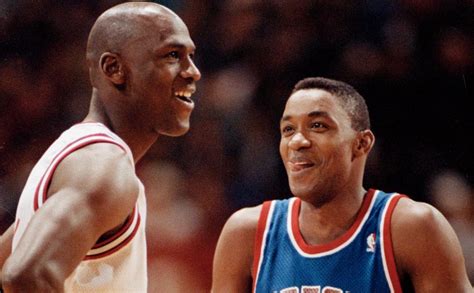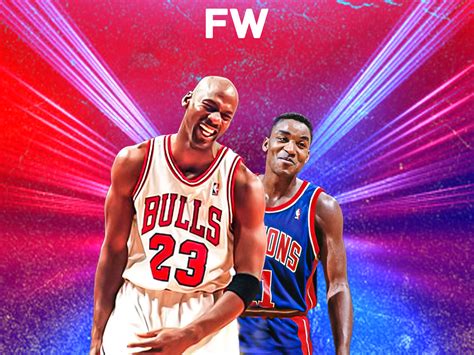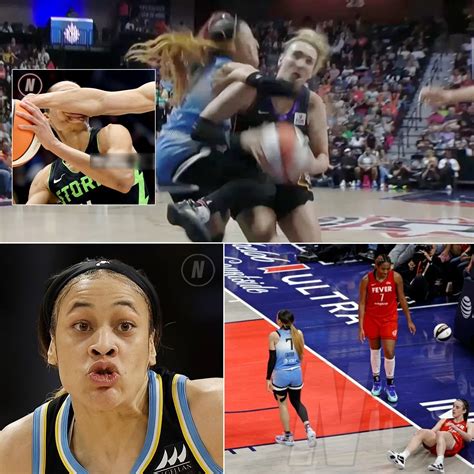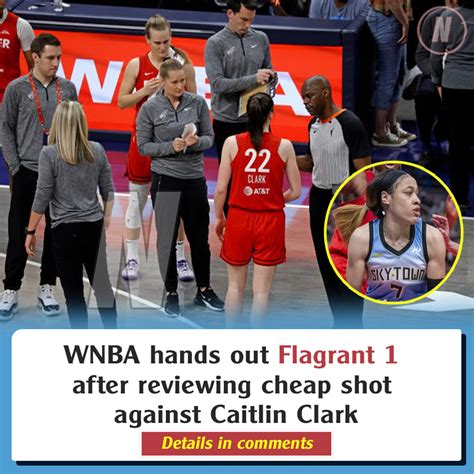
Brittney Griner has refuted allegations that she labeled Caitlin Clark with a racial slur, sparking further debate among basketball fans and commentators. The controversy arose following comments Griner made regarding the attention Clark receives compared to other WNBA players, leading some to interpret her statements as racially motivated.
Phoenix Mercury center Brittney Griner has vehemently denied claims that she referred to Indiana Fever rookie Caitlin Clark with a racial slur, igniting a firestorm of debate within the basketball community and on social media platforms. The controversy stems from Griner’s recent remarks about the disproportionate media attention and fan fervor surrounding Clark’s entry into the WNBA, with some observers interpreting her statements as racially charged. Griner, a prominent figure in the league and an outspoken advocate for equality, has faced intense scrutiny as a result of these accusations.
The accusation emerged after Griner highlighted the stark contrast between the attention Clark is receiving and the relative lack of recognition afforded to other talented WNBA players, particularly Black players who have been in the league for years. These players, according to many observers, have contributed significantly to the sport without receiving the same level of media coverage or endorsement deals. Critics argue that Griner’s remarks implied that Clark’s popularity is primarily due to her race, a charge that Griner has vehemently denied.
“I would never say something like that,” Griner stated in a recent interview, addressing the accusations directly. “My words were misconstrued, and my intentions were misunderstood. I have nothing but respect for Caitlin Clark and all the players in the WNBA. My point was simply to highlight the disparities in media coverage and recognition within the league, which is an issue that has been ongoing for far too long.”
The controversy underscores the complex dynamics of race, gender, and media representation in professional sports. While some fans and commentators have rallied to Griner’s defense, arguing that her comments were taken out of context, others have condemned her remarks as divisive and harmful. This split in opinion reflects a broader societal debate about the role of race in shaping perceptions and opportunities in sports and beyond.
The incident has also brought renewed attention to the persistent challenges of racial inequality within the WNBA, a league that is predominantly composed of Black players but often faces criticism for its marketing and promotional strategies. Many players and advocates argue that the league needs to do more to elevate the profiles of its Black stars and address the systemic biases that contribute to disparities in recognition and compensation.
The Initial Comments and Context
The genesis of the controversy lies in Griner’s initial comments, which were made during a press conference following a Mercury game. While discussing the impact of Clark’s arrival in the WNBA, Griner stated that “there’s a lot of great players in the WNBA that have been doing this for a long time, but the spotlight wasn’t on them. Now, it’s on one person, and that’s great for the league, but we can’t forget about the others who have paved the way.”
These remarks were interpreted by some as a veiled criticism of Clark, suggesting that her success was being unfairly prioritized over the accomplishments of more established players. Critics pointed to the fact that Clark, a white player, was receiving unprecedented media coverage and endorsement deals, while many Black players, who have long been the backbone of the WNBA, were not receiving the same level of attention.
However, Griner’s supporters argue that her comments were not intended as a personal attack on Clark, but rather as a broader critique of the media and the league’s marketing strategies. They contend that Griner was simply highlighting the need for greater equity in the way the WNBA promotes its players, regardless of their race.
Griner’s Denials and Clarifications
In response to the accusations, Griner issued a series of statements clarifying her position and denying that she had ever used a racial slur against Clark. She emphasized that she has always been an advocate for equality and inclusivity and that she would never intentionally say anything that could be construed as racist.
“I want to be clear: I have never and would never use a racial slur against Caitlin Clark or any other player,” Griner stated in a social media post. “My comments were solely focused on the need for greater recognition and support for all WNBA players, regardless of their race or background. I am deeply disappointed that my words have been twisted and misinterpreted to suggest otherwise.”
Griner also addressed the issue in a televised interview, reiterating her respect for Clark and her commitment to promoting diversity and inclusion in the WNBA. She emphasized that she believes Clark has the potential to be a great player and that she is excited to see what she can accomplish in the league.
“Caitlin is a talented player, and I wish her all the best,” Griner said. “I believe she can bring a lot of positive attention to the WNBA, and I am confident that she will be a valuable asset to the league. My only hope is that her success will also help to shine a light on the other amazing players who deserve recognition.”
Reactions and Fallout
The controversy has sparked a wide range of reactions from fans, commentators, and players alike. Some have expressed outrage at Griner’s alleged remarks, accusing her of racism and demanding an apology. Others have defended her, arguing that her comments were taken out of context and that she is being unfairly targeted because of her race and her outspokenness.
Several prominent WNBA players have weighed in on the issue, offering their perspectives on the complex dynamics of race, gender, and media representation in the league. Some have echoed Griner’s concerns about the lack of recognition for Black players, while others have cautioned against making generalizations or assumptions about people’s motivations.
A’ja Wilson, the Las Vegas Aces star, addressed the situation during a post-game press conference, stating, “I think it’s important for us to have these conversations, but we also need to be careful about how we frame them. We can’t assume that just because someone is successful, it’s because of their race. We need to look at the whole picture and consider all the factors that contribute to their success.”
The WNBA has also released a statement addressing the controversy, emphasizing its commitment to diversity and inclusion and urging fans and commentators to engage in respectful dialogue. The league stated that it takes all allegations of racism seriously and that it is committed to creating a welcoming and inclusive environment for all players, fans, and employees.
The Broader Context of Racial Disparities in the WNBA
The controversy surrounding Griner’s comments has brought renewed attention to the persistent challenges of racial inequality within the WNBA. The league, which is predominantly composed of Black players, has long faced criticism for its marketing and promotional strategies, which some argue prioritize white players over Black players.
Studies have shown that white WNBA players tend to receive more media coverage, endorsement deals, and promotional opportunities than Black players, even when their on-court performance is comparable. This disparity has led to accusations of systemic bias and calls for the league to do more to address the issue.
“The WNBA has a long history of underpromoting its Black players,” said Tamika Catchings, a retired WNBA legend and Hall of Famer. “We need to do a better job of telling their stories and showcasing their talents. These women are incredible athletes and role models, and they deserve to be recognized for their contributions to the league.”
The issue of racial disparities in the WNBA is further complicated by the fact that the league has struggled to attract a large and diverse fan base. While the WNBA has made progress in recent years, it still lags behind the NBA in terms of viewership, revenue, and overall popularity. Some observers believe that this is due in part to the league’s failure to effectively market its Black players to a wider audience.
The Impact on Caitlin Clark
The controversy has also had a significant impact on Caitlin Clark, who has found herself at the center of a heated debate about race and privilege. While Clark has not directly addressed the accusations against Griner, she has expressed her commitment to promoting inclusivity and equality in the WNBA.
“I believe that everyone should have the opportunity to succeed, regardless of their race or background,” Clark said in a recent interview. “I am committed to using my platform to advocate for equality and to support my teammates, both on and off the court.”
Clark’s arrival in the WNBA has undoubtedly generated a surge of interest in the league, and she has the potential to be a transformative figure for the sport. However, she also faces the challenge of navigating the complex dynamics of race and gender in a league that has long struggled with issues of inequality.
Moving Forward
The controversy surrounding Griner’s comments serves as a reminder of the ongoing challenges of racial inequality in sports and society. While there is no easy solution, it is important for all stakeholders to engage in open and honest dialogue about these issues and to work together to create a more equitable and inclusive environment.
The WNBA has a responsibility to address the systemic biases that contribute to disparities in recognition and compensation for its players. This includes investing in marketing and promotional strategies that showcase the talents of Black players and telling their stories to a wider audience.
Players, fans, and commentators also have a role to play in promoting respectful dialogue and challenging discriminatory attitudes and behaviors. By working together, we can create a more just and equitable world for all.
The league and its players must foster open discussions about race, privilege, and representation. This involves creating platforms for players to share their experiences and perspectives, as well as implementing diversity and inclusion training for all members of the WNBA community.
Addressing the historical and systemic issues that have contributed to racial disparities in the WNBA is essential for creating a level playing field for all players. This includes examining the league’s marketing strategies, endorsement opportunities, and compensation structures to ensure that they are fair and equitable.
Ultimately, the goal should be to create a WNBA that celebrates the diversity of its players and provides equal opportunities for success, regardless of race or background. This requires a commitment from all stakeholders to challenge biases, promote inclusivity, and work towards a more just and equitable future.
Frequently Asked Questions (FAQ)
-
What exactly did Brittney Griner say that led to the controversy? Brittney Griner’s initial comments were made during a press conference where she discussed the influx of media attention surrounding Caitlin Clark. Griner stated that while Clark’s arrival was good for the league, it was important not to forget the other great players who had “paved the way” without receiving the same level of attention. These remarks were interpreted by some as implying that Clark’s race was a factor in her disproportionate media coverage compared to other, predominantly Black, WNBA players.
-
Did Brittney Griner use a racial slur against Caitlin Clark? No, Brittney Griner has vehemently denied using any racial slur against Caitlin Clark. She has stated that her words were misconstrued and her intentions misunderstood. Griner claims her comments were intended to highlight existing disparities in media coverage and recognition within the WNBA, not to denigrate Clark.
-
What has been the reaction to this controversy within the WNBA community? The reaction has been mixed. Some fans and commentators have criticized Griner for her comments, accusing her of racism or insensitivity. Others have defended her, arguing that her remarks were taken out of context and that she was simply raising a valid point about the unequal promotion of players within the league. Several WNBA players have also weighed in, some echoing Griner’s concerns about racial disparities and others cautioning against making assumptions.
-
How has Caitlin Clark responded to the controversy? Caitlin Clark has not directly addressed the accusations against Griner, but she has expressed her commitment to promoting inclusivity and equality in the WNBA. She has stated that everyone should have the opportunity to succeed, regardless of their race or background, and that she is committed to using her platform to advocate for equality and support her teammates.
-
What are some of the broader issues that this controversy has brought to light within the WNBA? This controversy has highlighted the ongoing challenges of racial inequality within the WNBA, including disparities in media coverage, endorsement deals, and promotional opportunities for Black players compared to their white counterparts. It has also raised questions about the league’s marketing strategies and its efforts to attract a diverse fan base. The incident underscores the complex dynamics of race, gender, and media representation in professional sports.
Expanded Analysis and Contextual Information
The Griner-Clark situation exists within a larger framework of discussions about race, gender, and fairness in sports, particularly women’s basketball. To fully understand the nuances of this controversy, it’s crucial to consider several contextual layers, including historical patterns of racial bias in sports media, the evolving landscape of women’s basketball fandom, and the ongoing struggle for equity within the WNBA.
Historical Patterns of Racial Bias in Sports Media
Studies have consistently demonstrated that sports media coverage often exhibits a racial bias, with white athletes tending to receive more positive and extensive coverage than Black athletes. This bias can manifest in several ways:
- Framing of Narratives: White athletes are often portrayed as intelligent, hardworking, and possessing innate leadership qualities, while Black athletes are more likely to be described in terms of their physical abilities and athleticism.
- Volume of Coverage: White athletes often receive more media attention, even when their performance is comparable to that of Black athletes. This can translate into more articles, interviews, and television appearances.
- Endorsement Opportunities: White athletes are often more marketable and receive more lucrative endorsement deals, even when Black athletes have similar or superior on-court performance.
- Stereotyping: Media coverage can perpetuate harmful stereotypes about Black athletes, such as the “angry Black woman” trope or the notion that Black athletes are less disciplined or intelligent.
These patterns of racial bias have a significant impact on the careers of Black athletes, affecting their visibility, earning potential, and overall opportunities. They also contribute to a broader culture of inequality in sports, where Black athletes may feel undervalued or marginalized.
The Evolving Landscape of Women’s Basketball Fandom
Women’s basketball has experienced significant growth in popularity in recent years, driven in part by the rise of talented players like Caitlin Clark and a growing awareness of the importance of supporting women’s sports. However, this growth has also brought new challenges, including increased scrutiny and the potential for exploitation.
The influx of new fans, many of whom are drawn to the sport specifically because of individual players like Clark, can create a dynamic where certain players are elevated above others, potentially overshadowing the contributions of long-established athletes. This can lead to tensions within the league and concerns about the fair distribution of attention and resources.
Furthermore, the increasing commercialization of women’s basketball raises questions about the potential for exploitation of players, particularly young athletes who may be under pressure to conform to certain expectations or to prioritize marketing opportunities over their own well-being.
The Ongoing Struggle for Equity within the WNBA
The WNBA has made significant strides in promoting gender equality in sports, but it still faces numerous challenges in its quest for equity. These challenges include:
- Pay Disparities: WNBA players earn significantly less than their NBA counterparts, despite the fact that they are professional athletes performing at the highest level.
- Limited Resources: The WNBA operates with a much smaller budget than the NBA, which can affect the quality of facilities, training, and marketing efforts.
- Lack of Visibility: The WNBA still struggles to attract the same level of media coverage and fan attention as the NBA, which can limit its earning potential and impact.
- Stereotypes and Bias: WNBA players often face stereotypes and biases related to their gender and race, which can affect their opportunities and treatment.
Addressing these challenges requires a concerted effort from the WNBA, its players, its fans, and the broader sports community. This includes advocating for fair pay, investing in marketing and promotion, challenging stereotypes, and promoting diversity and inclusion.
The Role of Social Media
Social media has played a significant role in amplifying the Griner-Clark controversy, providing a platform for fans, commentators, and players to share their opinions and engage in debate. While social media can be a valuable tool for raising awareness and promoting dialogue, it can also be a breeding ground for misinformation, harassment, and hate speech.
In the case of the Griner-Clark controversy, social media has been used to spread false accusations, amplify negative stereotypes, and engage in personal attacks. This has created a toxic environment that has made it difficult for constructive dialogue to take place.
It is important for social media users to be mindful of the potential for harm and to engage in responsible online behavior. This includes verifying information before sharing it, avoiding personal attacks, and reporting abusive content.
Conclusion
The Brittney Griner-Caitlin Clark controversy is a complex and multifaceted issue that reflects broader tensions related to race, gender, and equity in sports. While Griner has denied using a racial slur, her comments have sparked a valuable discussion about the challenges of racial inequality in the WNBA and the importance of promoting diversity and inclusion.
Moving forward, it is essential for all stakeholders to engage in open and honest dialogue about these issues and to work together to create a more equitable and just environment for all athletes, regardless of their race or gender. This requires a commitment to challenging biases, promoting inclusivity, and investing in the success of all players. The WNBA, its players, and its fans have a responsibility to create a league where everyone feels valued, respected, and empowered to reach their full potential. Only then can the WNBA truly fulfill its promise as a platform for female athletes and a force for positive change in society.









